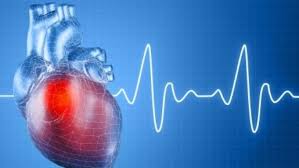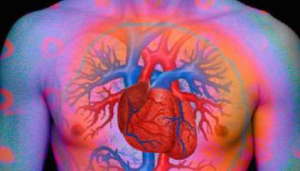Potassium is a mineral that your body needs to work properly. It is a type of electrolyte. It helps your nerves to function and muscles to contract. It helps your engine of the body to operate properly , being the heart. Potassium kept within the normal blood range helps keep the heartbeat stay regular. It also helps move nutrients into cells and waste products out of cells. A diet rich in potassium helps to offset some of sodium’s harmful effects on blood pressure. Knowing sodium’s impact on your blood pressure, a boost in your daily potassium intake can help you to maintain a healthy blood pressure or lower it to healthy levels.
Electrolytes are substances that help conduct electricity in your body. Potassium is one of the most important electrolytes in the human body, with others including chloride, calcium, phosphorus, magnesium and sodium. As an electrolyte, potassium is vital to the healthy functioning of all of your body’s cells, tissues and organs. It also helps to control the amount of water in your body and maintain a healthy blood pH level. As you lose electrolytes in your sweat, you should always obtain a source of these important minerals during or after a intense physical activity.
Potassium is particularly important for the ability of your skeletal and smooth muscles to contract. Because of this, an adequate intake of potassium is important for regular digestive and muscular functioning. Potassium is also vital to the health of your heart, as a normal heart rhythm arises from optimal muscular functioning. This is especially apparent if you have excessively high or low potassium levels, both of which can cause an irregular heartbeat. As heart arrhythmias are potentially life-threatening, you should always maintain an adequate daily intake of potassium.
When a M.D. or in the hospital the doctor orders electrolytes or drug levels to be done it is measuring the level outside the cell in our bloodstream. Potassium (K+) is the most abundant cation (action) in the body. About 90% of total body potassium is intracellular and 10% is in extracellular fluid, of which less than 1% is composed of plasma. The ratio of intracellular to extracellular potassium determines neuromuscular and cardiovascular excitability, which is why serum potassium is normally regulated within a narrow range of 3.5 to 5.0 mmol/L since the abundance of the potassium is in the red blood cell and its impossible to measure blood levels of anything inside a cell since it would destroy the cell.
Ingested K+ is absorbed rapidly and enters the portal circulation, where it stimulates insulin secretion. Insulin increases Na+,K+-ATPase activity and facilitates potassium entry into cells, thereby averting hyperkalemia. β2-Adrenergic stimulation also promotes entry of K+ into cells through increased cyclic adenosine monophosphate (cAMP) activation of Na+,K+-ATPase. Remember a person with diabetes has very little or no insulin at all which will effect potassium being sent into the cell unless the patient takes their insulin as ordered by the M.D.
Hypokalemia is serum potassium concentration < 3.5 mEq/L caused by a deficit in total body potassium stores or abnormal movement of potassium into cells. The most common causes are excess losses from the kidneys or GI tract. Clinical features include muscle weakness and polyuria; cardiac hyperexcitability may occur with severe hypokalemia. Diagnosis is by serum measurement. Treatment is giving potassium and managing the cause.
Low potassium (hypokalemia) has many causes. The most common cause is excessive potassium loss in urine due to prescription water or fluid pills (diuretics). Vomiting or diarrhea or both can result in excessive potassium loss from the digestive tract. Only rarely is low potassium caused by not getting enough potassium in your diet.
Hyperkalemia
If you have hyperkalemia, you have too much potassium in your blood. The body needs a delicate balance of potassium to help the heart and other muscles work properly. But too much potassium in your blood can lead to dangerous, and possibly deadly, changes in heart rhythm.
Hyperkalemia is a common diagnosis. Fortunately, most patients who are diagnosed have mild hyperkalemia (which is usually well tolerated). However, any condition causing even mild hyperkalemia should be treated to prevent progression into more severe hyperkalemia. Extremely high levels of potassium in the blood (severe hyperkalemia) can lead to cardiac arrest and death. When not recognized and treated properly, severe hyperkalemia results in a high mortality rate.
Technically, hyperkalemia means an abnormally elevated level of potassium in the blood. The normal potassium level in the blood is 3.5-5.0 milliequivalents per liter (mEq/L). Potassium levels between 5.1 mEq/L to 6.0 mEq/L reflect mild hyperkalemia. Potassium levels of 6.1 mEq/L to 7.0 mEq/L are moderate hyperkalemia, and levels above 7 mEq/L are severe hyperkalemia.
Potassium is critical for the normal functioning of the muscles, heart, and nerves. It plays an important role in controlling activity of smooth muscle (such as the muscle found in the digestive tract) and skeletal muscle (muscles of the extremities and torso), as well as the muscles of the heart. It is also important for normal transmission of electrical signals throughout the nervous system within the body.
Normal blood levels of potassium are critical for maintaining normal heart electrical rhythm. Both low blood potassium levels (hypokalemia) and high blood potassium levels (hyperkalemia) can lead to abnormal heart rhythms.
The most important clinical effect of hyperkalemia is related to electrical rhythm of the heart. While mild hyperkalemia probably has a limited effect on the heart, moderate hyperkalemia can produce EKG changes (EKG is a reading of the electrical activity of the heart muscles), and severe hyperkalemia can cause suppression of electrical activity of the heart and can cause the heart to stop beating.

